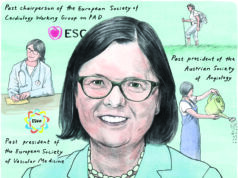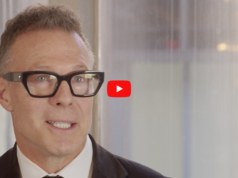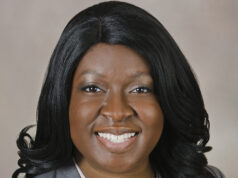 Amid the COVID-19 pandemic, Benjamin W Starnes and Niten Singh urge service chiefs across the USA to “act this minute” in order to conserve resources and save lives.
Amid the COVID-19 pandemic, Benjamin W Starnes and Niten Singh urge service chiefs across the USA to “act this minute” in order to conserve resources and save lives.
We live in unprecedented times. On 19 January, patient zero arrived in the USA at Seattle-Tacoma International Airport after returning from a visit to his family in Wuhan, China. He tested positive for COVID-19 on 20 January. Fast forward one month, and the heroic efforts of Helen Chu at the University of Washington, who, despite running against a cease-and-desist order by the federal government, ran COVID-19 tests on 2,500 sputum samples being used for another study on the flu virus. She found the first community-acquired case in a 17-year-old asymptomatic boy who was about to return to high school in Renton, Washington. The school was closed immediately after the information was verified.

By 9 March, 11 days ago, there were 172 confirmed cases in Seattle and an alarming 22 deaths due to an outbreak in a skilled nursing facility in nearby Kirkland. On that day, Dean Paul Ramsey and the leadership of UW Medicine decided to cancel all work-related travel from university employees. Three days later, on 12 March, UW Medicine made the decision to cancel all elective surgeries. On that day, there were 387 confirmed cases—despite minimal testing—and 30 deaths in the Seattle metropolitan area. Our hospital began to conserve masks, eliminate medical students and nonessential observers from using surgical masks to observe our cases.
As chief and associate chief of the division of vascular surgery at the University of Washington, we immediately made the decision to continue to offer surgery to abdominal aortic aneurysm (AAA) patients with diameters over 5.5cm, dialysis access and surgery for chronic limb-threatening ischaemia (CLTI) with a potential for limb loss. That decision quickly changed. On Sunday 15 March, when the case count was by now 642 cases and 40 deaths, we made the decision to call two friends in Italy, a country hard-hit by COVID-19 and in a state of lockdown and panic. Pierantonio Rimoldi and Germano Melissano, based in Milan in the country’s north, gave us the terrifying news. Their healthcare system was completely overrun. These are the notes we took away from that phone call:
- Ninety per cent of the workload in all hospitals is related to COVID-19. The remaining 10% involves urgent/emergent patients. He carried out a ruptured AAA yesterday (19 March)
- Every intensive care unit (ICU) is filled with COVID-19 patients
- They have cancelled all surgeries except true emergency cases—they do not carry out elective AAA, CLTI patients or dialysis patients
- Everyone is isolated at home. The only places people are allowed to go are local pharmacies or food markets. If caught on the street without permission papers, they receive a large fine or three months in jail
- The Italian doctors say the only way to control COVID-19 is for people to stay home
- Their very first case—patient zero—was 20 February, some 24 days ago. Our first reported case in the USA was 21 January, and first death 29 February
- They said they do not have enough ventilators for all who require them. We asked what their triage criteria were:
- Age 80 and older—do not resuscitate (DNR)
- Age 70 to 80—if there are any significant comorbidities (congestive heart failure, chronic kidney disease, chronic obstructive pulmonary disease, diabetes): DNR. For all others, a decision is made on a case-by-case basis
- All ventilators are reserved for people who have a strong chance of survival
- Almost all deaths are among the elderly
- They said surgeons do nothing except urgent or emergent cases. They are not being utilised in ICUs or wards because they simply get in the way. It is like a paediatrician volunteering to come scrub-in on a case to “help”—they would just get in the way outside their area of expertise

These represent frightening statistics, altering our mentality completely. We immediately implemented the following changes to our service line:
- Cancelling all elective cases, including the ones listed above. Our patients fall into the category of high risk when contracting COVID-19. So exposing them and using up resources was not the right thing to do
- We will perform only emergent cases. Cases performed over the weekend were a ruptured AAA and a gunshot wound to a carotid artery
- Cancelling clinic to avoid exposure of our patients, staff and surgeons to COVID-19. If we are exposed and need to quarantine for two weeks, that could quickly decimate a vascular service
- Restructuring our faculty and residents such that one attending surgeon and resident will cover for a week at a time, with back-up as required for those that contract or are exposed to COVID-19—as well as the potential for multiple operations at the same time
- Eliminating any unnecessary time in the hospital. We have a daily Zoom morning report. Our weekly division conference, monthly faculty meeting and resident conference are also staged via Zoom
- Understanding our role in preserving the “3Ss,” as they say here at UW (staff, space and stuff). The projections at our hospital for the peak in three weeks’ time is sobering—potentially close to 1,000 inpatients in our system. We would imagine this is the same in other cities
- Preparing our residents to understand that some may be called to assist in ICU roles if our medical colleagues require the help
- Accepting that this is a crisis and truly understand what an emergent case is. We have never crashed a patient from clinic to the operating room. So any patient who is seen in the clinic is not an emergent case
- We may have patients who will rupture their AAA or suffer an amputation. We need to accept that today’s mentality is not the same as a week ago—and certainly not a month ago

As of the time of writing, here in Washington state we have 1,376 confirmed cases and 74 deaths, which we believe is just the tip of the iceberg. We expect our hospitals to experience a surge in COVID-19 patients by 9 April (see Figure 1). As two vascular surgeons with extensive combat military experience and experience working in resource-constrained environments, we desperately plead with all service chiefs across the USA to act this minute in order to conserve our resources and save lives. Do not sit on your hands.
Benjamin W Starnes is professor and chief—and Niten Singh is professor and associate chief—in the division of vascular surgery at the University of Washington, Seattle, USA.
Share your story
If you have been affected or have any information, we’d like to hear from you. You can get in touch by emailing the editor at [email protected] and one of our journalists may contact you to discuss further.













